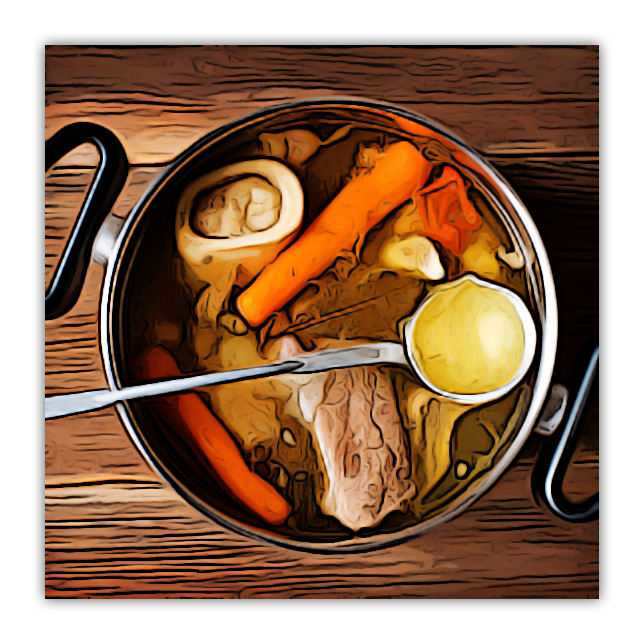How To Naturally Increase Collagen Production
One of the latest crazes to dazzle the supplementation world happens to be the most abundant protein in the body: collagen.
You may have noticed this powdered protein pop up in countless supermarkets across the land, stating it’ll make you younger, build your muscle, rid you of joint pain, hand you vibrant skin, and pretty much everything else except for change the year on your birth certificate. But what is it exactly? Does it work? How does it work? Should you partake? Is it safe? All to he answered soon, but first, we’ll get into the what.
How To Naturally Increase Collagen Production
What Is Collagen
Collagen is the most widespread protein in the body. It accounts for about a third of all protein and is ultimately created with the assistance of vitamin c, by combining amino acids glycine and proline.
Collagen is special because it provides some of the structure to bones, ligaments, tendons, muscles, teeth, blood vessels, your corneas, skin, and even helps blood clot.
Collagen supplements are based on collagen peptides. A peptide is a chain of amino acids. Amino acids make the structure of proteins.
Collagen peptides are pieces of protein from animal collagen.
With all of its special duties collagen is still considered an incomplete protein since it is missing one of nine essential amino acids: tryptophan. Essential amino acids are those that can’t be synthesized by the body.
There are several versions of collagen, but 4 main types that explain its various functions:
Type I: gets around the most, making up 90% of your total collagen. It heavily dabbles in giving foundation to bones, connective tissue, teeth, tendons, cartilage, ligaments, and skin. Reasons it has a compacted structure of fibers.
Type II: you’ll find these in elastic cartilage. Loosely structured to allow mobility while cushioning joints.. helping prevent damage.
Type III: a supporter of the almighty muscle, your arteries, and also organs.
Type IV: assists by being a filter in your epidermal layers.
What Causes Collagen Loss
UV damage from unprotected natural and/or artificial sunlight
Aging process
High sugar intake
Smoking
Chronic stress
Unbalanced dietary habits
Ways To Limit Collagen Loss
The best offense is a good defense. You can enact steps to preserve the quality of your collagen such as:
Avoiding smoking
Eliminating excess sugar and processed food more often than not
An overall quality diet that includes an array of vitamins, minerals, proteins, and beneficial fats
Use sunscreen; SPF 15 or higher [5].. don’t hit the sun for extended periods without skin protection
Lower excess stress in positive ways
Good sleep hygiene
Consistent exercise
Keep up, for you will need a concerted effort since the body is not doing as good a job as it used to at producing collagen the older you get.
How To Increase Collagen Production
As with many aspects of our bodies, IE testosterone and growth hormone, we produce less and lower quality collagen with age.
To counteract these less than optimal collagen-related age effects.. Consume your daily helping of: vitamin c, stay on your copper intake, zinc, antioxidants, omega 3s, and of course the almighty protein.
Gelatin utilization is another way to assist with collagen production, since it contains glycine and proline (amino acids necessary for collagen production).
Fun fact: gelatin is created from boiled animal bones. Yes.. J e l l o was alive (hehe).
Another dietary path to get your collagen in is via bone broth. Since it is found in connective tissue, you’ll get the desired properties of collagen.
Chicken skin, pork skin, fish, and beef also support your collagen aim.
Does Collagen Supplementation Work
The supplementation of collagen is not a heavily studied subject, so the jury is largely still out. A couple of studies show promise in the muscle mass and skin elasticity department, but this would happen with any general increase in protein intake.
The most promising use of collagen is for joint pain relief. PubMed did a study finding that undenatured type II collagen can abate some nagging joint issues more so than other resources like glucosamine [1].
Take heed of the bold print.
Undenatured means unbroken. Only undenatured, which means it’ll be less processed, type II collagen is likely effective for joint pain relief.
10-40mg daily is an effective dose [2].
Collagen supplements have been touted as likely safe, hence if you take a crack at it you are doubtful to experience side effects.
My Thoughts
Seems taken as a whole collagen peptides would provide insufficient concentrations of type II for joint relief. So look for an isolated supplement that focuses on type II collagen.
I won’t steer you away from reaching for undenatured type II collagen because the alleviation of pain at the joint is likely.
But if you want those other potential collagen benefits.. My suggestion is instead of supplementing, up your protein, try the collagen loss prevention methods listed, try the collagen production methods listed, and call it a day.
So, It’s About That Time
Collagen is the most abundant protein we carry and produce. And like us, the animal protein we consume contains mostly collagen. Follow a generally healthy diet and you will do fine. Eat protein, get your vitamins/minerals in, drink water, lift weights, put those muscles to use, and Be Great.
Sources:
[1] pubmed.ncbi.nlm.nih.gov/18416885/
[2] pubmed.ncbi.nlm.nih.gov/9485087/
[3] sciencedirect.com/topics/neuroscience/collagen



